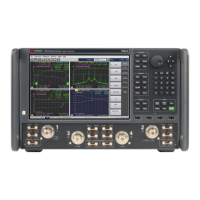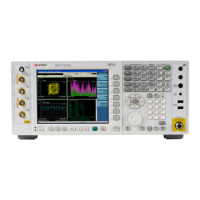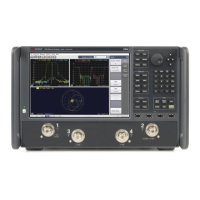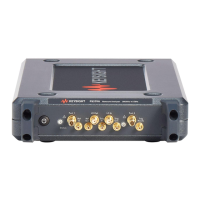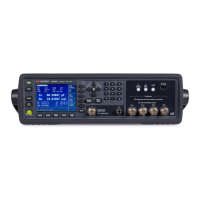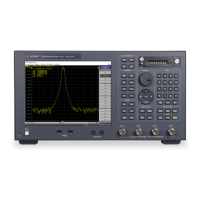3 Programming the Analyzer
IEEE 488.2 Common Commands
If Align RF component succeeded, initializes the time for the Last Align Now, RF Time.
If Align RF component succeeded, records the temperature for the Last Align Now, RF Temperature.
Status Bits/OPC
dependencies
Bits 11, 12, or 14 may be set in the Status Questionable Calibration register.
Initial S/W Revision Prior to A.02.00
Mode All
Remote Command
*CAL?
Example *CAL?
Notes *CAL? returns 0 if successful
*CAL? returns 1 if failed
:CALibration[:ALL]? is the same as *CAL?
See additional remarks described with :CALibration[:ALL]?
Everything about :CALibration[:ALL]? is synonymous with *CAL? including all conditions, status
register bits, and couplings
Initial S/W Revision Prior to A.02.00
Clear Status
Clears the status byte register. It does this by emptying the error queue and clearing all bits in all of the
event registers. The status byte register summarizes the states of the other registers. It is also responsible
for generating service requests.
Key Path
No equivalent key. Related key System, Show Errors, Clear Error Queue
Remote Command
*CLS
Example *CLS Clears the error queue and the Status Byte Register.
Notes For related commands, see the SYSTem:ERRor[:NEXT]? command. See also the STATus:PRESet
command and all commands in the STATus subsystem.
Status Bits/OPC
dependencies
Resets all bits in all event registers to 0, which resets all the status byte register bits to 0 also.
Backwards Compatibility
Notes
In general the status bits used in the X-Series status system will be backwards compatible with ESA
and PSA. However, note that all conditions will generate events that go into the event log, and some
will also generate status bits.
Initial S/W Revision Prior to A.02.00
Standard Event Status Enable
Selects the desired bits from the standard event status enable register. This register monitors I/O errors
and synchronization conditions such as operation complete, request control, query error, device
142 EMI Receiver Mode Reference
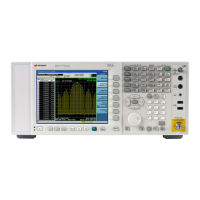
